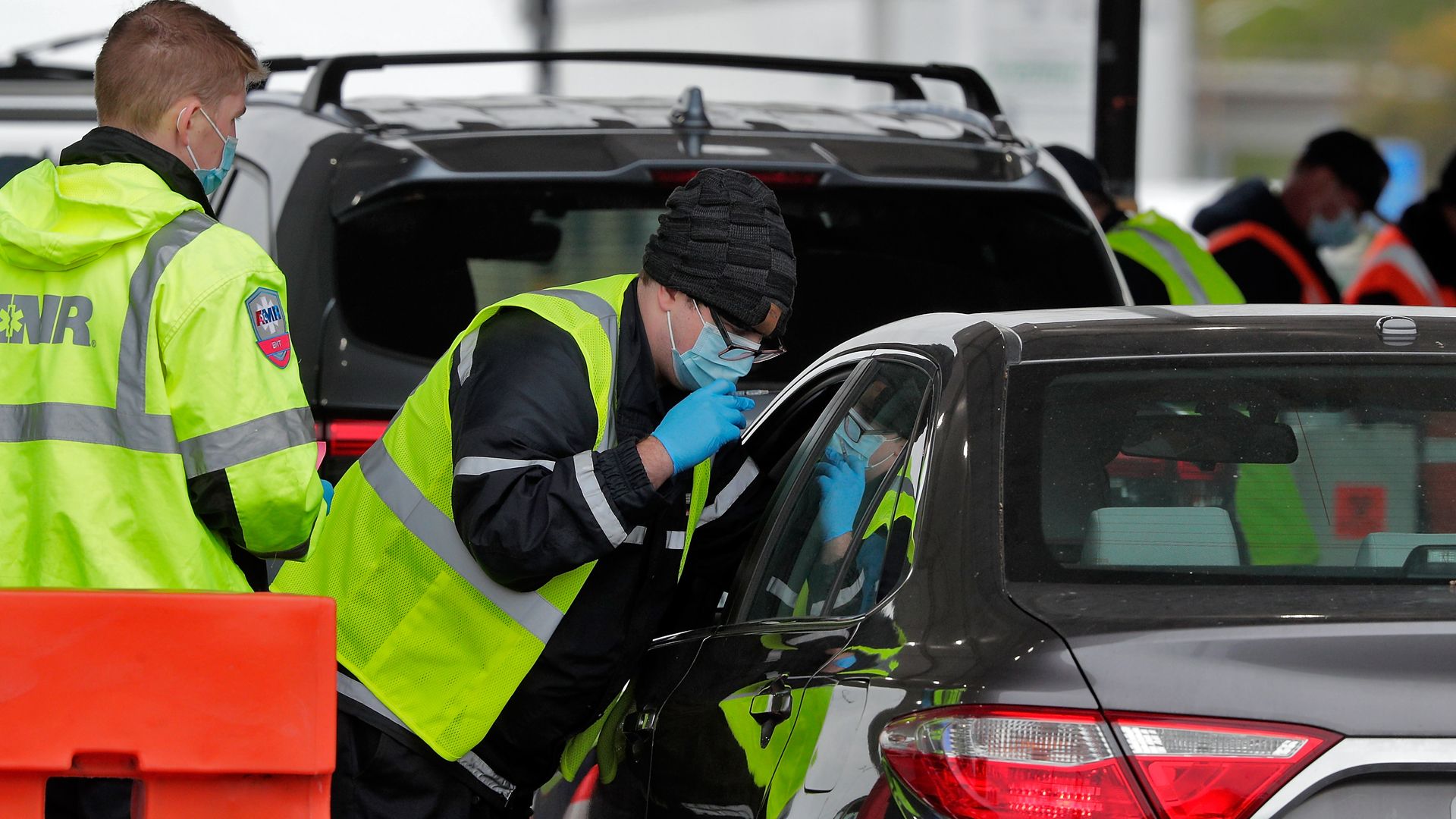Feb 24, 2021 - Politics & Policy
States pass coronavirus aid without Congress
Add Axios as your preferred source to
see more of our stories on Google.

A health care worker administering a coronavirus vaccine at a mass vaccination site in Oakland, Calif., on Feb. 16. Photo: Carlos Avila Gonzalez/The San Francisco Chronicle via Getty Images
